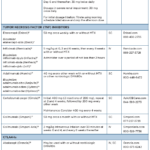According to a new study, fibromyalgia prevalence is elevated in PsA and is associated with elevated disease measures, confounding reliable disease assessment for treat-to-target goals.
What Clinical Factors Affect Length of Transition to Psoriatic Arthritis in Patients with Psoriasis?
Objective We aimed to identify clinical and demographic features associated with the interval between the appearance of psoriasis and the onset of psoriatic arthritis (PsA). Methods We identified patients with psoriasis and PsA diagnoses from our tertiary care psoriatic disease biorepository: a longitudinal, real-world database including clinical information and patient-reported outcomes. We used a multivariable,…

ACR on Air: A Deep Dive into Psoriatic Arthritis
Hosted by Jonathan S. Hausmann, MD, a pediatric and adult rheumatologist at Boston Children’s Hospital and Beth Israel Deaconess Medical Center, and an instructor in medicine at Harvard Medical School, ACR on Air debuted in 2019. In this episode, ACR Master (2016) Philip J. Mease, MD, joins Dr. Hausmann for a deep dive into psoriatic…

FDA Approves 2 Upadacitinib Formulations for Children with pJIA & PsA
Upadacitinib, as a tablet and oral solution, is now FDA approved to treat children age 2 years and older with active polyarticular juvenile idiopathic arthritis or psoriatic arthritis.

Skin & Joints: Experts Discuss Advances in PsA
SAN DIEGO—The understanding of the microenvironment in which immune cells interact with stromal cells in the synovium of psoriatic arthritis (PsA) and rheumatoid arthritis (RA) is deepening, potentially giving clues for treatments. As this understanding improves, so does the appreciation for its astounding complexity, an expert said here in a session at ACR Convergence, which…

The Heterogeneity of Psoriatic Arthritis
SAN DIEGO—Differences between psoriatic arthritis and rheumatoid arthritis highlight the need for the development of imaging modalities, laboratory tests and other biomarkers that are explored and validated specifically for PsA to advance the goal of personalized or precision medicine. In this article, expert David S. Pisetsky, MD, PhD, explores the top research in psoriatic arthritis presented at ACR Convergence 2023.

Why Mental Health Screening Is Essential for Patients with Psoriatic Disease
Research suggests that patients with psoriasis and psoriatic arthritis (PsA) have a greater risk of depression, anxiety and, in some cases, substance abuse and dependence than the general population, yet symptoms often go unrecognized and untreated by medical professionals. Both psoriasis and PsA are associated with depression, with up to 30% of patients in either…

Psoriatic Arthritis Drugs at a Glance, 2023
Biosimilars have become a therapeutic turning point for many patients who are living with rheumatic illnesses. Psoriatic arthritis (PsA) is a complex, multi-faceted chronic inflammatory musculoskeletal and skin disease where the treatment has changed considerably over the past few years. Psoriatic arthritis has an impact on about 30% of people with psoriasis.1 In 2019, the…

First Biosimilar to Adalimumab (Humira) Enters the U.S. Market After Years of Legal Battles
After years of legal disputes between drug makers, adalimumab-atto (Amjevita) biosimilar to adalimumab (Humira) is now available in the U.S. to treat rheumatoid arthritis and other diseases. Adalimumab-atto is the first of several biosimilars to adalimumab expected to become available in the U.S. in 2023.

Psoriatic Arthritis Treatment Update
About 30% of patients with psoriasis have psoriatic arthritis (PsA), a complex, multi-faceted, chronic, inflammatory musculoskeletal and skin disease for which the treatment has changed considerably over the past few years.1 Biosimilars and other new drugs have become a therapeutic turning point for many patients suffering from rheumatic illnesses, including PsA. The treatment of PsA…